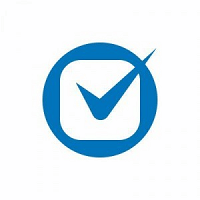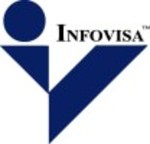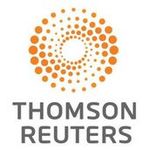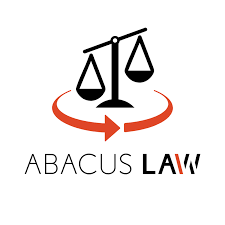Yes, trust accounting software may usually be accessed from numerous devices and platforms. Most modern trust accounting software is web-based, which means it can be accessed via a web browser from any device with an internet connection. This encompasses desktops, laptops, tablets, and cellphones, and is compatible with both Windows and Mac operating systems. Furthermore, several trust accounting software packages include mobile apps, allowing for easy access on the road.
List of Best Trust Accounting Software
Clio solution for small and mid-sized law firms looking to streamline operations and increase efficiency. This secure and cloud-based software offers a range of features including practice management, timekeeping, billing, and client collaboration. S...Read More Clio
TrustNet - the leading trust accounting software used for various industries such as banking, law, and special needs trusts. Created specifically for Windows, TrustNet is the ideal solution for businesses and organizations seeking a dependable and st...Read More TrustNet
Experience the power and precision of TotalTrust is a accounting solution designed for lawyers and financial professionals managing trusts, estates, and guardianships. Our intuitive interface simplifies fiduciary reporting, making it easier than ever...Read More TotalTrust
Trust Accounting software solution for effortless and organized trust account management. This cutting-edge software streamlines the compliance process, generates customer statements, tracks receipts, and handles check writing, cross ledger posting,...Read More Trust Accounting
TrustBooks is a trust accounting software specifically designed for small law firms and solo practitioners. Our cloud-based, SaaS, and web formats allow for seamless management, reporting and reconciliation of trust accounts. Give TrustBooks a try fo...Read More TrustBooks
MAUI solution for real-time trust accounting. With its user-friendly interface and powerful features, MAUI simplifies managing general account information, tracking balances, and reviewing transaction history. Advanced capabilities, including accrual...Read More MAUI
AccuTrust Gold, the top-notch solution for all your real estate trust accounting needs. With advanced features such as accrual accounting, asset gain & loss reporting, compliance management, customer statements, and more, streamline your processes ef...Read More AccuTrust Gold
ONESOURCE Trust Tax - the premier trust tax preparation and compliance solution. Our software streamlines trust management processes with advanced automation features for precise and efficient tax filing. Say goodbye to manual errors and simplify you...Read More ONESOURCE Trust Tax
FASTER - the leading cloud-based software exclusively crafted for trust and estate experts. Featuring cutting-edge capabilities such as court accounting, estate tax, and gift tax preparation, FASTER simplifies financial reporting and ensures adherenc...Read More FASTER
Troika is a innovative trust account automation software designed to streamline your processes and minimize data duplication. It seamlessly integrates with your existing tax software and allows for data feeds to be imported for efficient report gener...Read More Troika
CosmoLex, a top-notch Accounting Software designed to streamline your financial management processes. This powerful tool offers features such as expert statements, bill and expense organization, inventory management, and real-time access, saving busi...Read More CosmoLex
AbacusLaw the cloud-based legal case management software with a proven track record of 30 years in the industry. Our advanced features and user-friendly interface streamline workflows and boost business productivity. With mobile accessibility, you ca...Read More AbacusLaw
LEAP Legal is a cloud-based practice management software tailored to meet the needs of law firms. Our comprehensive platform offers a range of essential features, including matter organization, legal form automation, email management, time tracking,...Read More LEAP Legal
EnVisual WealthDesk is a financial CRM and compliance solution that provides a seamless integration of various modules for effective management of client data. Its party-centric approach provides a comprehensive view of clients, while its advanced ru...Read More enVisual WealthDesk
AdvantageLaw is a legal management solution for your organization. Get the most out of our powerful Winvantage and AdvantageXpress software with the dedicated support of our online team. Joining AdvantageLaw is simple and our team is always ready to...Read More AdvantageLaw
Learn More About Trust Accounting Software
- What Is Trust Accounting Software?
- What Are The Recent Trends In Trust Accounting Software?
- Benefits Of Using Trust Accounting Software
- Important Factors To Consider While Purchasing Trust Accounting Software?
- What Are The Key Features To Look For In Trust Accounting Software?
- Why Do Businesses Need Trust Accounting Software?
- How Much Time Is Required To Implement Trust Accounting Software?
- What Is The Level Of Customization Available In Trust Accounting Software?
- Which Industries Can Benefit The Most From Trust Accounting Software?
- Conclusion
What Is Trust Accounting Software?
Trust accounting software is a sort of accounting software specifically intended to help professionals and organizations manage trust accounts. A trust account is a bank account that holds funds or assets for a client or beneficiary. Lawyers, real estate brokers, and financial consultants are some of the professionals who frequently use trust accounts.
Trust accounting software offers a comprehensive solution for monitoring and managing multiple trust accounts. It enables professionals to accurately record trust account transactions such as deposits, withdrawals, and interest generated while adhering to applicable laws and regulations. One of the main benefits of trust accounting software is the ability to separate trust funds from the professional's business or personal cash.
This division is critical for safeguarding the funds' integrity and preventing potential misuse or mistreatment. Trust accounting software also allows professionals to create thorough reports and statements for each trust account, which makes it easier to track and reconcile activities. In addition to handling trust accounts, trust accounting software may contain functionality for client information, invoicing, and billing management.
Some software may also link with other accounting systems, giving experts a comprehensive financial management solution. When looking for trust accounting software, consider elements such as ease of use, regulatory compliance, and interoperability with other systems. Some software may also provide additional capabilities, such as configurable workflows and secure document storage, to provide a more personalized experience.
What Are The Recent Trends In Trust Accounting Software?
The popularity of trust accounting software has increased significantly in recent years, as more organizations recognize the need for an effective and secure approach to handle their trust funds. With significant technological improvements, trust accounting software has developed to match the market's shifting needs and wants.
Let's explore, we've highlighted the important trends affecting the trust accounting software landscape to help you make an informed decision when selecting the best software for your company.
1. Cloud-Based Solutions: One of the most significant changes in trust accounting software is the transition to cloud-based solutions. These systems enable users to access their trust accounts from anywhere, at any time, and on any device with an internet connection. This not only makes trust fund transactions more convenient, but it also promotes collaboration and real-time tracking.
2. Automation And Integration: As the volume of financial transactions grows, manual data input and reconciliation become time-consuming and error-prone. To solve this, trust accounting software now automates operations like invoicing, payments, and bank reconciliations, saving firms time and lowering the possibility of human error. Integration with other software, such as accounting or legal management systems, has also gained popularity, as it streamlines operations and eliminates repeated data entry.
3. Improved Security Features: Because trust accounting deals with sensitive financial information, firms must prioritize security. Advanced security features such as multi-factor authentication, data encryption, and regular backups have become popular in trust accounting software. Some software additionally provides audit trails and permission settings to ensure regulatory compliance.
4. Mobile Accessibility: As organizations become more mobile, so does the demand for trust accounting software that is available on the go. Mobile apps and responsive designs are becoming more popular, allowing consumers to administer trust funds using their smartphones and tablets. This allows attorneys and other professionals to manage trust accounting responsibilities while in court or on the fly.
5. Real-Time Reporting And Analytics: Trust accounting software now includes real-time reporting and analytics capabilities, allowing organizations to keep track of their trust fund balances and performance. These tools offer visual representations of financial data, making it easier to spot trends, track costs, and make sound decisions.
Benefits Of Using Trust Accounting Software
Trust accounting software is specifically intended to help legal practitioners manage trust money more efficiently and simply. With the growing complexity of trust accounting requirements and the proliferation of online transactions, trust accounting software has become vital for both law firms and solo practitioners.
Let's explore, we'll look at the many advantages of adopting trust accounting software and how it might help your legal firm.
1. Compliance With Regulations: One of the primary benefits of adopting trust accounting software is that it ensures legal compliance. Trust funds must be properly managed and recorded, and any errors can have serious ramifications for legal professionals. Trust accounting software has features and safeguards that assure compliance with trust accounting standards and regulations, saving you time and lowering the chance of errors.
2. Time-Saving: Trust accounting software automates a variety of time-consuming procedures, including reconciling bank statements and creating client reports. This frees up vital time to focus on other important duties, such as serving clients and expanding your practice. Trust accounting software allows you to easily prepare reports for audits and other compliance obligations, saving you even more time and effort.
3. Centralized Data Management: Trust accounting software offers a centralized platform for tracking all trust account transactions and client information. This eliminates the need for several spreadsheets or manual records, lowering the likelihood of errors and making client funds easier to access and track. You may also track transaction history, which will provide a clear and organized record of all trust account activity.
4. Seamless Connectivity: Many trust accounting software alternatives include connectivity with other legal software, such as practice management and billing systems. This enables seamless data transmission between different systems, eliminating the need for duplicate data entry and optimizing the overall workflow.
5. Improved Security: Trust funds are subject to stringent security standards, and trust accounting software includes advanced security capabilities to protect against potential risks. This comprises user rights and access controls, activity logs, and the encryption of sensitive data. With trust accounting software, you can be confident that your clients' finances and information are safe and secure.
Important Factors To Consider While Purchasing Trust Accounting Software?
When it comes to choosing trust accounting software, there are numerous key elements to consider to ensure that you are making the greatest decision for your individual requirements. While there are numerous options on the market, not all trust accounting software is created equal.
That's why it's critical to evaluate these vital considerations before making a purchasing decision:
1. Trust Accounting Compliance: Because trust accounting involves handling client funds and assuring their correctness and security, it is critical to choose software that is specifically created for trust accounting and adheres to all applicable legal and professional rules. This includes capabilities like tracking customer payments and creating correct audit reports.
2. Accessibility And Usability: Because trust accounting software will be used by a variety of users with varied degrees of technical competence, it should be simple to use. To ensure smooth functioning, choose software with a simple interface, customisable dashboards, and easy navigation.
3. Integration Capabilities: Because trust accounting software is likely to be combined with other critical tools such as accounting software or document management systems, it is critical to choose software that supports integration. This will ensure that data is transferred efficiently and processes are streamlined, saving both time and effort.
4. Security Measures: Because trust accounting contains sensitive financial data and customer confidential information, it is critical to select software with adequate security measures in place. Look for choices that include two-factor authentication, data encryption, and access controls to increase security.
5. Accounting Features: In addition to specialized trust accounting functions, it is critical to assess the software's overall accounting capabilities. Look for alternatives that include extensive accounting features, such as general ledger, accounts payable and receivable, and bank reconciliation, so you can manage all your financial operations in one location.
6. Cloud-Based vs. On-Premise: Another important consideration is whether you choose a cloud-based or on-premise solution. Cloud-based software allows for remote access and automatic updates, whilst on-premise software provides greater control over data and security.
7. Customer Support: Excellent customer service is essential in the event of a technical problem or concern. Look for software that provides dependable and responsive customer assistance, such as a knowledge base, tutorials, and live chat capabilities.
What Are The Key Features To Look For In Trust Accounting Software?
When it comes to trust accounting software, every buyer should examine a few crucial aspects. These features not only ensure that your trust accounting operations run smoothly, but they also help you stay compliant with industry requirements.
The following are the top features to look for in trust accounting software.
1. Real-Time Data Tracking: The software should provide for real-time tracking of all trust account transactions, such as deposits, withdrawals, and transfers. This provides for accurate and up-to-date reporting while avoiding any errors and discrepancies.
2. Bank Reconciliation: Reconciling bank statements is an important aspect of trust accounting, and excellent software should automate the process. It should be able to compare transactions to corresponding bank statements and highlight any differences for further investigation.
3. Multiple Account Management: If you manage a number of trust accounts, you should have software that allows you to manage them all from one single location. This eliminates the need for different platforms while streamlining your accounting procedures.
4. Integrated Accounting: Look for software that combines trust accounting and general accounting. This enables seamless integration of financial data while eliminating the need for manual data entry.
5. Client Data Management: Because trust accounting is client-centric, the software should provide tools for managing client data such as contact information, billing details, and trust account balances. This guarantees that all client data is easily accessed and arranged.
6. Auditing Capabilities: Trust accounts are auditable, and excellent software should provide auditing features. This facilitates report creation while also ensuring compliance with auditing criteria.
7. Security Measures: Because trust accounting deals with sensitive financial information, the program must have robust security features. This includes data encryption, user access controls, and scheduled backups.
8. Cloud-Based System: Cloud-based trust accounting software is gaining popularity since it enables for remote access and cooperation. This is especially handy for accounting firms with many locations or those who operate on various devices.
9. User-Friendly Interface: An easy-to-use interface is vital for software efficiency. Look for features like customized dashboards, simple navigation, and a clean layout.
10. Customer Help: Because trust accounting software can be difficult to use, having access to dependable customer help is critical. This could include phone or online support, user guides, and tutorials.
Why Do Businesses Need Trust Accounting Software?
Trust accounting is a critical component of any organization that manages fiduciary assets, including attorneys, real estate agents, and financial advisors. This accounting method involves maintaining and tracking monies held in trust for clients or other parties. Because of its sensitive nature, trust accounting has stringent laws and compliance standards that organizations must follow. Trust accounting software can help firms achieve accurate and compliant trust accounting.
Here are the major reasons why organizations should invest in trust accounting software.
1. Simplifies: Trust Management: Trust accounting software automates transaction recording, balance management, and report generation, making it easier to manage various trusts. This saves firms time and effort, allowing them to concentrate on more vital areas of their operations.
2. Ensures Compliance: Trust accounting software is specifically developed to ensure that users follow the laws and regulations established by regulatory organizations. It enables firms to keep up with changing regulations and avoid costly penalties for noncompliance.
3. Reduces Human Error: Manual trust accounting allows for the risk of human error, which might have major repercussions. Trust accounting software removes the possibility of data entry mistakes, resulting in accurate and error-free records.
4. Provides Advanced Security: Trust accounting software has advanced security features like password protection and data encryption to keep sensitive financial information safe and secure.
5. Offers Real-Time Insights: Trust accounting software enables firms to gain real-time data and insights into their trust accounts. This enables people to make informed decisions and monitor their financial health.
6. Increases Efficiency: Trust accounting software automates numerous time-consuming activities, helping firms to complete transactions more quickly and efficiently. This boosts overall productivity and profitability.
How Much Time Is Required To Implement Trust Accounting Software?
The time required to implement trust accounting software varies depending on various aspects, including the size of your firm, the complexity of your accounting operations, and the features and customization possibilities of the software you select. Implementing trust accounting software can take anything from a few days to a few weeks. First, you will need to configure the software with your company's information and data, which may take a day or two.
This involves providing basic information such as your company name, address, and contact information. You will also need to provide your clients' names, account numbers, and trust fund details. The program will then need to be customized to meet your specific business requirements. This can include creating payment categories, enabling automated reminders, and assigning security permissions to different individuals.
This procedure can take anything from a few days to a week, depending on the intricacy of your organization and the software's customization choices. Once the initial setup is complete, you will need to migrate your existing trust accounting data to the platform. This may include importing data from spreadsheets, PDFs, or previous software applications. This process could take anything from a few days to a week, depending on the amount of data and the software's compatibility.
After the data migration is complete, you must do extensive testing to confirm that the program is running properly. This includes conducting trial transactions and ensuring the correctness of financial reporting. This testing process might take anything from a few days to a week, depending on the intricacy of your accounting procedures.
Finally, once the trust accounting software has been fully configured and validated, you can start utilizing it in your regular business. The time required for this final phase will vary depending on how quickly you and your staff adjust to the new program. Training and support from the software provider can greatly shorten this period and aid in a smooth transition.
What Is The Level Of Customization Available In Trust Accounting Software?
When it comes to selecting the best trust accounting software for your company, one essential consideration is the level of customization offered. Every organization has unique demands and preferences, so being able to customize the program to meet your specific needs can significantly improve its effectiveness and usefulness. Most trust accounting software provides a variety of customization options, allowing you to tailor the software to your own business model and processes.
This includes tailoring reporting, workflows, and user rights to your specific business requirements. Some software even supports custom branding, allowing you to tailor the interface and documents with your company's logo and colors. In terms of accounting features, trust accounting software typically includes a customized chart of accounts, which allows you to manage and categorize various types of trust money and transactions based on your preferences.
This can substantially simplify your financial reporting and increase its relevance to your organization. Furthermore, some trust accounting software may provide third-party connectors or APIs, which enable additional customization and integration with other applications and systems. This is useful if you already have specialized software or workflows in place that you wish to integrate with your trust accounting software.
Overall, the level of customization offered in trust accounting software varies based on the provider, but most alternatives provide a high level of flexibility to meet your specific business requirements. When exploring different software solutions, make sure to consider the customization possibilities available and select one that meets your company's needs and preferences.
Which Industries Can Benefit The Most From Trust Accounting Software?
Trust accounting software is an essential tool for managing finances and protecting client trust accounts across businesses. While it is necessary for all organizations that manage client cash, several industries can benefit even more from implementing a trust accounting system. Law Firms The legal sector can tremendously benefit from trust accounting software.
Attorneys sometimes handle significant amounts of client funds, such as retainers, settlements, and other deposits. Trust accounting software enables them to correctly manage all transactions, ensure compliance with trust accounting requirements, and provide reports for clients and regulatory bodies. Real Estate Real estate agents and brokers also handle substantial client monies, such as earnest money deposits and rent payments.
Trust accounting software can help them track these monies, automate rent collection and disbursements, and provide reports for landlords and renters. It can also help you manage trust accounts for property management and escrow services. Nonprofit organizations Trust accounting software can also help non-profit organizations that accept donations, grants, and other contributions.
These organizations must keep proper records of all funds, including restricted and unrestricted gifts. Trust accounting software can assist them in tracking these monies, creating reports for contributors and auditors, and maintaining transparency in their financial procedures. Financial Institutions Banks, credit unions, and other financial institutions also handle client trust accounts.
Trust accounting software can assist them in accurately tracking and managing these funds, adhering to legal standards, and creating reports for account holders and government organizations. It also allows them to avoid penalties for noncompliance while maintaining consumer confidence and happiness. Small businesses. Smaller businesses that handle client cash, such as property management companies, legal firms, and real estate agencies, can also profit significantly from trust accounting software. It streamlines the process of managing client assets, lowers the risk of error and fraud, and aids in the compliance with trust accounting requirements.
Conclusion
Finally, trust accounting software is a must-have tool for every organization or individual who manages trust money. Whether you run a law business, an investing firm, or a non-profit organization, having a dependable and efficient trust accounting system may help you streamline your procedures and assure accuracy and compliance. When considering purchasing trust accounting software, you should evaluate your individual requirements and budget. Consider crucial features such as usability, security, reporting capabilities, and customer support.
Clio, QuickBooks, and CosmoLex are some of the preferred trust accounting software solutions. Each of these solutions has distinct features and benefits, so properly explore and compare them before making a decision. Finally, investing in trust accounting software can help you save time, reduce the risk of errors, and have piece of mind knowing that your trust funds are being correctly managed. With this buyer's guide, we hope you have enough knowledge and insights to make an informed decision and find the trust accounting software that best meets your needs.
Trust Accounting Software FAQ's
Can Trust Accounting Software Be Accessed Across Multiple Devices And Platforms?
Is Trust Accounting Software Future-Proof And Adaptable To Emerging Technologies Like AI, Blockchain Or IoT?
Trust accounting software has proven to be future-proof and adaptable to upcoming technologies such as artificial intelligence, blockchain, and the Internet of Things. With advanced features such as automatic data entry, smart contract integration, and real-time tracking, it has transformed trust accounting management.
As technology advances, these software solutions are regularly updated to keep ahead of the curve and provide smooth interaction with emerging technologies, resulting in a dependable long-term investment for enterprises.
Is There A Free Trial Offered To Assess Trust Accounting Software Before Committing?
Yes, many trust accounting software vendors provide a free trial period before you commit to their services. This lets users to evaluate the software's functionality, interface, and compatibility with their business requirements without making a payment commitment. It also allows them to determine if the program fits their expectations and is worth investing in. Make sure to use these free samples to make an informed decision.
Does Trust Accounting Software Offer Data Security Features And Meet Regulatory Compliance Standards?
Absolutely. Trust accounting software is intended to provide advanced data security features while still meeting stringent regulatory compliance norms. This includes encrypting sensitive data, performing regular backups, and implementing strong user access controls. Audit tracking and reporting are common components of trust accounting software that assure regulatory compliance. This gives users piece of mind, knowing that their trust funds and client information are secure.
Can Trust Accounting Software Integrate Seamlessly With Existing Tools And Platforms?
Yes, trust accounting software can work easily with most existing tools and platforms, including QuickBooks and Microsoft Excel. This allows for efficient and precise data transfer, minimizing the need for human entry and lowering the possibility of errors.
Furthermore, trust accounting software may integrate with bank feeds, making it easier to reconcile transactions and track client cash. Trust accounting software's integration features provide a seamless and simplified solution for managing trust accounts.

















